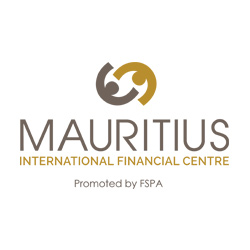In conversation with
Mr Harvesh Seegolam
CEO | Financial Services Promotion Agency (FSPA)

FDI Spotlight: What are the strategies for further development of Mauritius as an International Financial Centre?
Harvesh Seegolam: Since 2015, the Government of Mauritius has embarked on a number of initiatives to graduate Mauritius as an International Financial Centre (IFC) of repute and excellence.
Firstly, the Financial Services Promotion Agency (FSPA) was reactivated to provide a centralised approach to the promotional strategy of the financial services sector. At the same time, a new identity for the Mauritius IFC was launched. The MIFC is henceforth more visible in the international fora owing to the aggressive marketing strategy of the FSPA.
The FSPA is also consistently working with regulators, players and other stakeholders to ensure that we remain a competitive jurisdiction. As such, the FSPA, under the guidance of the Ministry of Financial Services, Good Governance and Institutional Reforms, and in collaboration with the regulator, developed a new suite of bespoke products that caters to a more sophisticated range of investors.
What is Mauritius’ potential to truly become a world-class regional financial centre for Africa?
Harvesh Seegolam: As the platform of choice for cross-border African investments, Mauritius endeavours to be a catalyst for investment and growth in the continent. The island’s location sets to play a strategic role given its geographical proximity, while its political, social and economic stability, and regulatory framework, offer a certainty to global investors to look up to Africa as an investment destination.
Mauritius has further built strong ties with Africa. It is a member of several trade blocs and regional organisations such as the Southern African Development Community (SADC), the Common Market for Eastern and Southern Africa (COMESA) and the African Union, thus providing investors with a potential market of over 400 million people. As part of these memberships, Mauritius has also signed a number of multilateral and bilateral investment treaties that allow for more efficient and safer transactions.
The attractive business climate prevailing in the island have placed Mauritius at the top of international benchmarks in the region. Mauritius is ranked first in Africa on the World Bank Ease of Doing Business Index. Mauritius also tops the African continent on key international benchmarks namely the Heritage Foundation Index of Economic Freedom, the Forbes Survey of Best Countries for Business, the Democracy Index, the Mo Ibrahim Index of African Governance and the Environmental Performance Index, amongst others.
Insights on the growth and development of the financial services sector and long-term impact on the country’s economic growth.
Harvesh Seegolam: According to recent statistics, the financial services sector makes up 12% of our annual GDP, with a growth rate of 5.3%.
This places the financial services sector as one of the main drivers of the country and also gives a good indication of the diversified aspect of the economy. With the launch of the Mauritius IFC and the new strategy that we have embarked on, we are further poised to consolidate this sector and bring higher quality of employment for our young graduates, and increase our value addition to the Mauritian economy.
There is a vital need to further diversify the portfolio of financial services and products currently offered in Mauritius, in order for the island to stay competitive with international markets. What are you thoughts on this subject?
Harvesh Seegolam: Indeed, as the Mauritius IFC is moving towards the next phase of development, the FSPA is committed to play a catalytic role by developing sophisticated services and bespoke products to further diversify the financial services sector in Mauritius, and to also adapt to the new requirements of the international investing community.
From this perspective, the FSPA has come up with numerous new product offerings and schemes to increase the attractiveness of the Mauritius IFC. The new segments and a brief summary thereof are enumerated below:
1. Global Legal Advisory Services License – a new regime for international flagship law firms to establish presence in Mauritius;
2. The Mauritius International Derivatives and Commodities Exchange – new platform for trading of derivatives and precious metals and stones;
3. Overseas Family Corporations – a new scheme for high net worth families to domicile their wealth base in Mauritius;
4. Investment Banks – a new license, independent from the Banking Act 2004 will be introduced by the FSC, catering for investment banks and corporate finance;
5. A new Global Headquarters Administration Scheme for multinational corporations to set up their headquarters in Mauritius for their operations in the region;
6. A revamped Global Treasury Activities Scheme for the treasury activities of multinational corporations and their related entities.
What is the role that the FSPA is playing on the importance of human capacity building and professional development for the sector?
Harvesh Seegolam: The FSPA operates the Financial Services Institute (FSI), a capacity building directorate. The prime objective of the FSI is to develop and nurture youth talent and make them work-ready with appropriate occupational and specialist skills in specific areas of the financial services sector with focus on new business activities.
The FSI is adopting a demand-driven policy, training young unemployed graduates in relation to pipeline projects and job openings available with operators recently licensed by the Financial Services Commission.
Personal message of confidence to choose Mauritius as a stepping stone platform for global investment.
Harvesh Seegolam: Mauritius has proven itself as an ideal hub of repute and choice for cross-border investments for more than two decades. We are building on this proven track record to better position our jurisdiction and enhance the value addition and offering to the international investing community.
The Mauritius IFC is the ideal jurisdiction, especially for Africa-bound investments, in terms of mitigating risks and maximizing fiscal efficiency. The FSPA is committed to facilitate and hand-hold international investors expanding their footprint in Africa.
